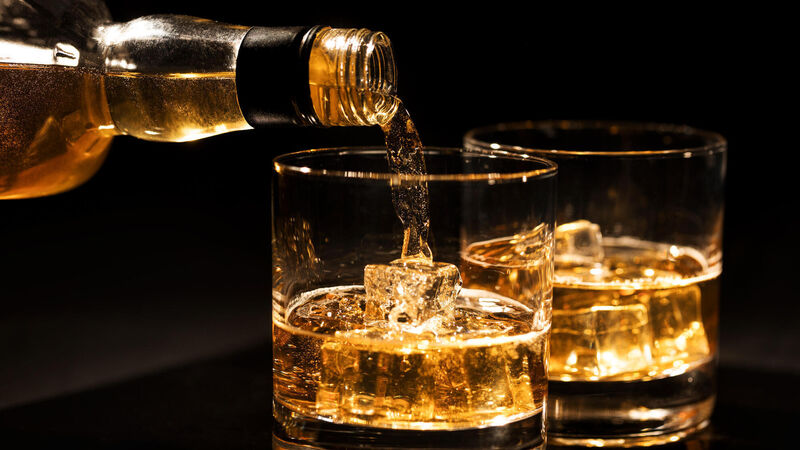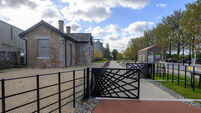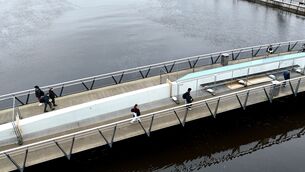Cork HSE's northside alcohol support service sees 10 deaths in two years

“In recent times, we are seeing commercial interests challenge this progress,” said Ms Ní Chonchúir, citing the example of health labelling on alcohol, which has been pushed out to 2028, and the rise in advertisements for zero-alcohol products.
Fighting to change alcohol policy is a “David and Goliath” challenge, according to the HSE’s David Lane, adding that in the last two years, 10 of those who have attended its alcohol hub in Blackpool have lost their lives.
It comes as new research shows that 34% of participants in a Cork city survey said alcohol had harmed their health.
The Cork and Kerry Alcohol Strategy Group launched its alcohol strategy, ‘Communities in Action — Reducing Alcohol Harm in Cork and Kerry 2025-2030’ and Safer Cork City Initiative at Nano Nagle Place on Douglas St yesterday.
Aoife Ní Chonchúir from Cork Healthy Cities opened the event, highlighting progress made by the Cork and Kerry Alcohol Strategy Group so far, including campaigns to enact the Public Health (Alcohol) Bill 2018, to bring in minimum unit pricing, restrict alcohol advertising, and make changes to displays in supermarkets, describing these as “hard-won victories”.
“In recent times, we are seeing commercial interests challenge this progress,” said Ms Ní Chonchúir, citing the example of health labelling on alcohol, which has been pushed out to 2028, and the rise in advertisements for zero-alcohol products.
“Alcohol harms so many lives here in Cork and Kerry — liver disease, heart disease, increased risk of cancer, mental health struggles like depression and anxiety. Its effects ripple through families and communities,” she said, adding that one in four presentations at emergency departments are related to alcohol.
This was echoed by Dr Susan Calnan of UCC School of Public Health and a Health Research Board research fellow, who explained that alcohol is responsible for four deaths a day and 1,500 a year in Ireland, and that 1,000 people in Ireland are diagnosed with alcohol-related cancers each year, yet awareness about alcohol as a carcinogenic remains low.
Dr Calnan also spoke about links between alcohol and harm to others, such as violence or car accidents, injury, neglect or abuse, property damage, noise disruption, and foetal alcohol disorder.
LABELLING DELAYED
Alcohol harm costs the State an estimated €12.4bn annually, while just €1.2bn is made on excise duty, she said, also lamenting that labelling on alcohol, part of the Public Health Act, was delayed until 2028.
“We need to keep alcohol high on the agenda for our policy makers,” she said.
She mentioned potential extensions to trading hours which would see pubs and nightclubs open later, but pointed to international research showing this would lead to a 16% increase in crime and a 34% rise in hospitalisations.
Orla Fagan, national lead for Safer, shared the results of a Cork city baseline survey which found that in the Cork South Central area, 34% of participants indicated that drinking had harmed their health; 30% said that they had family or marriage problems due to someone else’s drinking; and 14.9% reported that their friendship, work, or studies had been damaged by their own drinking.
Another of the speakers, Superintendent John Deasy, said that for gardaí:
“Alcohol is a significant element and contributing factor in many, if not most, of the situations we encounter.”
This includes people committing criminal acts to acquire alcohol, domestic violence and road traffic incidents, he said, adding that every day, 1,500 people in hospital beds across Ireland are there because of alcohol misuse.
“We’ve become immune … because alcohol, more than any other intoxicant, is embedded in the people and the society we serve,” he said.
Supt Deasy agreed with Dr Calnan. “Longer trading hours for bars and restaurants will negatively impact public disorder,” he said.
He said that when tackling alcohol issues, “the best results come not from Garda enforcement alone, but from community engagement”.
David Lane, the HSE’s general manager of social inclusion in Cork and Kerry, said that progress made in the past in terms of regulations around alcohol through the Public Health Act was “a watershed moment in Irish political history — for the first time, we stood up to the power of the alcohol industry”.
“Though many pieces of that legislation are not enacted still, like the delay in alcohol health labelling to 2028, we will keep on fighting,” he said.
“When we fight against an industry with tens of millions available to it, and we have next to nothing, it’s a bit of a David and Goliath story.”
Mr Lane added that he received a call recently from a woman whose “husband is really caught up in alcohol addiction”.
“They have two young kids; he’s unwilling to ask for help; and she’s crying out: ‘What do we do?’,” he said.
He said the HSE’s Integrated Alcohol Service, based in Blackpool, has seen 10 of the young people who attended the service die in the just-over two years it has been in operation.
“Ten young lives ... and I think of their family and friends now left to pick up the pieces, but we have to do anything we can to make a difference,” he said.
“We will not be found wanting, as a health service. I will do whatever I can to help, to fight, to hold the mirror up to Government politicians and say: ‘Look at what you’re doing’.
“We often make judgements of people caught up in addiction, but there’s something else that can be found in each of them,” said Mr Lane. “There’s always hope, and that’s what we have to hold onto as professionals, as husbands, wives, boyfriends, and girlfriends.”
Closing the event, Ms Ní Chonchúir remarked on the “sense of hope and fighting spirit in the room”, and encouraged people to get involved with the group, to help implement the five-year strategy.










 App?
App?


